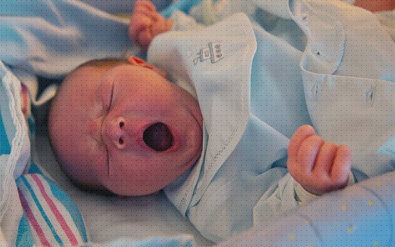What can we learn from baby poop? Well, as it turns out, a lot.
In a study released Wednesday, researchers analyzed the pH balance in infant poop over the last century and found a significant decline in a kind of good gut bacteria, which, researchers say, may explain the increase of some allergies and autoimmune diseases.
“What’s happening inside the intestine plays a big role in what’s happening outside the intestine,” said Dr. Mark Underwood, chief of neonatology at UC Davis and a co-author of the study. “The poop is the way to kind of get at what’s happening inside the intestine.”
Researchers examined clinical studies from 1926 to 2017 of fecal matter from breast-fed infants and found the pH of their poop increased over time. The increase in pH indicates a loss of a good bacteria called bifidobacteria.
“The pH of the stool represents which bacteria, good or bad, is in baby,” said Jennifer Smilowitz, associate director of human studies research program at UC Davis’ Foods for Health Institute and a co-author of the study. “We’ve seen an increase in fecal pH from 5 to 6.5 (over the last century), so the change is exponential. This is like measuring an earthquake on a Richter scale. That 1½ change is huge.”
Underwood said the loss of bifidobacteria over the years may explain the “dramatic increase” in autoimmune diseases and allergies – such as type I diabetes and asthma – that weren’t common at the turn of the century. Autoimmune diseases are illnesses in which the body’s immune system attacks its own cells.
Type I diabetes, where the body produces antibodies that target the insulin-producing cells in the pancreas, have increased by 21 percent between 2001 to 2009, according to a 2014 study published in the Journal of the American Medical Association.
“In developed, resource-rich countries, we see fewer of those healthy bifidobacteria and more of the bacteria that cause infection,” he said. Medical advancements such as widespread use of antibiotics, cesarean sections and formula feeding have unintentionally killed off bifidobacteria over the years. Countries like Bangladesh and Gambia are showing levels of bifidobacteria that were common 100 years ago.
“We are seeing unintended consequences from those interventions and we’re seeing it in baby poop,” Smilowitz said.
For example, when a baby is born via vaginal delivery, it is inoculated with bifidobacteria living in the mother’s vagina and anus, Smilowitz said. But when a baby is delivered through cesarean section, it’s first bacterial inoculation is from bacteria living on the skin, which is not bifidobacteria.
Mothers can pass bifidobacteria to their babies through breastfeeding, “but a mother can only pass on what she has,” Underwood said. “And if she doesn’t have these good bacteria then she can’t colonize her baby with them.”
To address this deficiency, Underwood said people should avoid antibiotics when they’re not necessary and try to get good bacteria back through probiotics.



